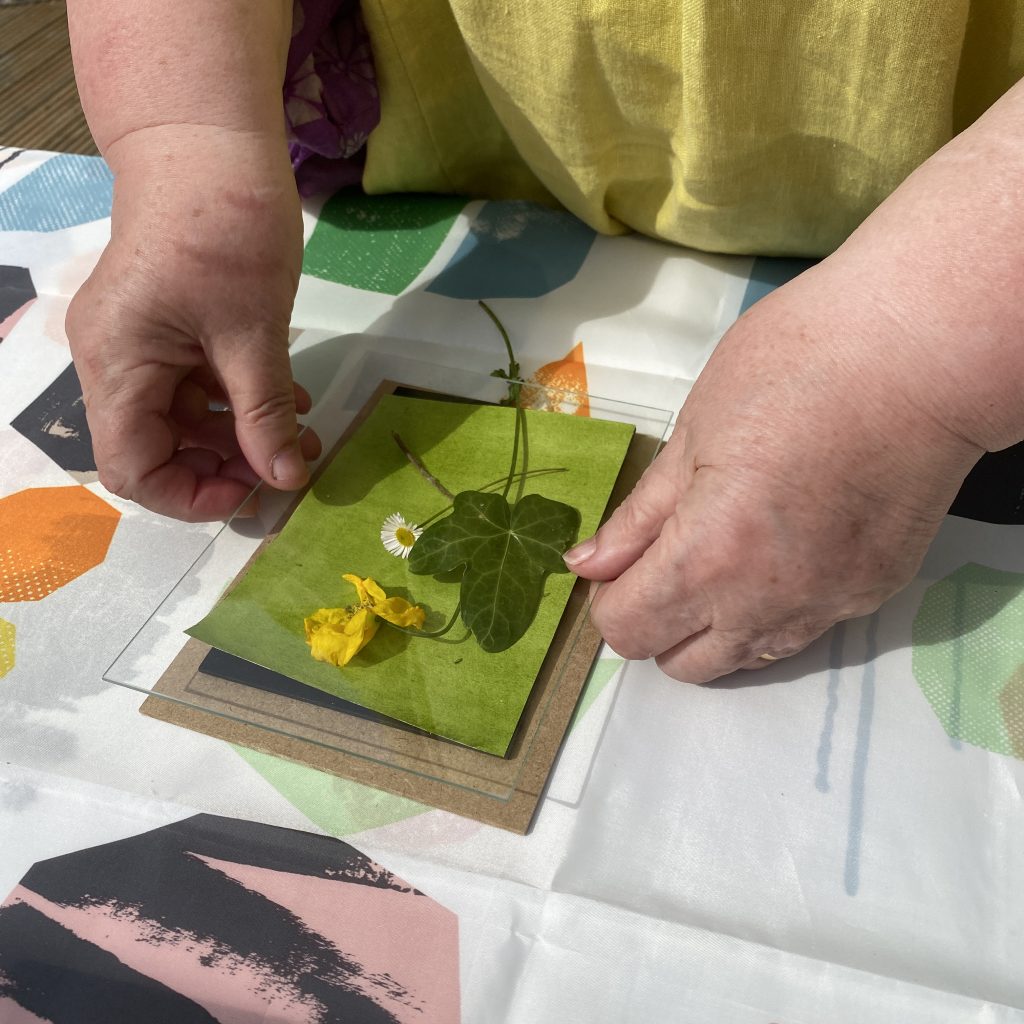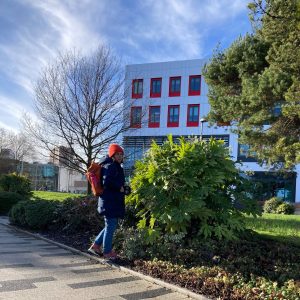Socially Engaged Photography Gwen Riley Jones, shares why she wanted to work on the Sustaining Photography project.
In 2019, The British Youth Council declared the climate emergency the “biggest issue facing young people”. This headline is taken from the Planting for the Planet exhibition, held at RHS Garden Bridgewater in 2022. In this exhibition, I worked with young people from Action for Conservation to explore nature-based solutions to climate change. Through the process of collaborating with, and learning from, a group of young people to make images for the exhibition, my creative practice changed forever.
We were making work about nature-based solutions to climate change, so I wondered, are there any plant-based photographic techniques? Turns out there’s loads.
As soon as I started to learn about it – it made total sense – plants create energy using light – they are light sensitive, they contain pigments that adapt and change with changes in light intensity. My mind was blown, I was hooked.
But what hooked me in deeper was that I could suddenly create photographs in my kitchen at home. The process is safe and non-toxic, even edible, and I could create anthotype paper at home in my kitchen whilst I made my daughter’s breakfast. I’ve been a photographer for 20 years but setting up a home darkroom has always felt like too big a task – for many reasons, not least, toxic waste.

Perfection in the imperfection.
It is a parody of the industrial world that in searching for photographic perfection, faster shutter speeds, sharper images – steps towards the sublime – we have created a toxic world. Maybe the perfection is actually found in the imperfections, in these green pictures which will fade to nothing when left out in the sun.
And from here, well it makes you wonder, if we don’t need to use these harmful substances, why do we?
So I now work with sustainable photographic processes almost as a metaphor for sustainable practices, sustainable lives. As a way of starting a conversation – if we can do this using only plants – what else can we do using only plants?
I grew some beetroot, made anthotypes out of the juice, film developer out of the peelings, and pickled the beets to eat for lunch. You don’t need much money and you certainly don’t need perfection. The beauty of this process is in the imperfection, and the accessibility of the practice.
So we invite you to join us: pick some spinach from the community growing space (but also make sure you join in and plant some more!) make some anthotypes, cook a curry, use the vegetable peelings to develop your film, ask some new questions.
Share the spoils of your practice with those around you. Put up a picture, pass on a plate of food, share your experience. And let us know what else you decide to do differently.
Sustaining Photography is a collaborative project by Lizzie King & Gwen Riley Jones to connect and engage students at the University of Salford with sustainable photographic processes, using produce from the University’s Community Growing Space. The project is based at The University of Salford and has been funded by the Salford Advantage Fund and The University of Salford Art Collection.
Click here to find out more.
